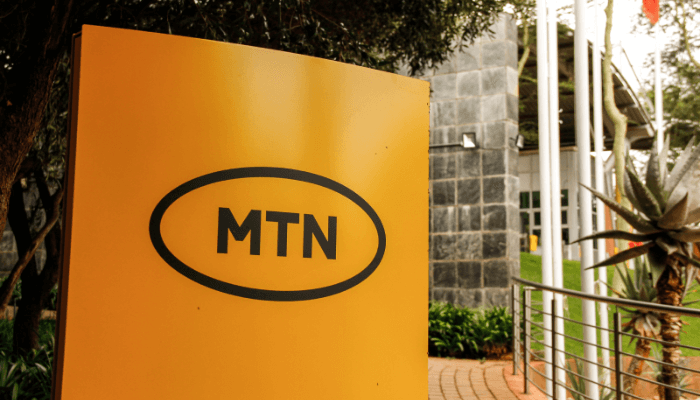Amina Patterson, a seasoned startup ecosystem builder in South Africa, speaks on how to address the challenges facing the country’s early-stage startup ecosystem.
With a decade of experience in the South African startup ecosystem, Amina Patterson’s work has seen her engage and collaborate with over 60 startups. In her role as head of business operations at AlphaCode, one of the country’s leading accelerators, she acquired hands-on and first-hand experience in the challenges facing startups.
From that experience and insights, she has continued her ecosystem-building work as founder of Solve4x, a firm focused on helping corporates efficiently support startups. She is also an entrepreneur-in-residence at the Allan Gray Orbis Foundation, assisting startups with business model validation and commercial resource accumulation as well as facilitating market, funding introductions, and ecosystem progression.
On this episode of Ask An Investor, TechCabal caught up with Patterson to learn more about her work as well as the state of the early-stage startup ecosystem in South Africa.
TechCabal: Please share more about your journey in the SA startup ecosystem
AP: Over the past decade, my journey in the South African startup ecosystem has been a dynamic and transformative one. I’ve had the privilege of designing innovative solutions for corporates aimed at supporting and empowering small and medium-sized businesses. This experience has allowed me to witness first-hand the immense potential and creativity that startups bring to the market.
At the core of many ground-breaking solutions are startups that possess an unwavering dedication to addressing the most pressing challenges faced by their customers, all while maintaining a strong client-centric focus. It’s this spirit of innovation and tenacity that has consistently inspired me throughout my career.
In 2018, I took a pivotal step in my journey by becoming deeply involved with the AlphaCode Incubate Programme. This decision marked a turning point in my career, as it allowed me to immerse myself in the world of startups more intimately than ever before. Since then, I’ve never looked back. Working closely with AlphaCode and its startups has been an incredibly enriching experience.
Over the lifespan of my career, I’ve had the privilege of collaborating with more than 60 startups across various sectors. This hands-on involvement has given me valuable insights into the challenges and opportunities that startups face in South Africa’s dynamic business landscape. It’s been a journey filled with learning, growth, and an unwavering commitment to nurturing the entrepreneurial spirit that drives our nation’s innovation.
Looking ahead, I’m excited to continue my work in the South African startup ecosystem, leveraging my experience to support and mentor the next generation of visionary entrepreneurs. I firmly believe that startups are the lifeblood of innovation, and by empowering them, we can collectively contribute to the growth and success of our nation’s economy.
What motivated you to pursue a career in the ecosystem?
AP: I’ve always been deeply captivated by the world of entrepreneurship. It’s a realm that’s defined by its roller-coaster ride of highs and lows, its potential to transform communities and nations, and the unwavering mindset required to build a business from the ground up. From a young age, I found myself drawn to the stories of visionary individuals who dared to dream big and take risks.
What truly ignited my passion for the ecosystem was the realisation that being a part of it grants you access to some of the brightest minds on our continent. These entrepreneurs, driven by their boundless creativity and determination, are on a mission to tackle pivotal socio-economic challenges head-on. Their resilience and innovative thinking inspire me every day.
I chose to pursue a career in the ecosystem because I wanted to contribute to the remarkable journey of these entrepreneurs. I wanted to play a role in helping them turn their ambitious visions into reality. It’s not just about fostering economic growth; it’s about being a catalyst for positive change and progress.
Over the years, as I’ve worked closely with startups and witnessed their transformative potential, my motivation has only grown stronger. I’ve seen first-hand how nurturing and guiding these entrepreneurs can impact their businesses, the broader community, and the nation. The satisfaction of being a part of this journey and witnessing the ripple effects of their success is what drives me every day.
In essence, my career in the ecosystem is a testament to my unwavering belief in the power of entrepreneurship as a force for good. It’s a journey that keeps me inspired, motivated, and deeply committed to supporting the brilliant minds that shape our future.
What is your favourite part about the work you do?
AP: Being exposed to exciting solutions that challenge the status quo. Meeting new entrepreneurs and working with them to overcome the hurdles in achieving product market fit and building thriving, scalable businesses.
What is the most challenging part about the work you do?
AP: The most challenging aspect of my work is witnessing promising businesses grapple with market access hurdles due to outdated corporate processes. Startups often face lengthy sales cycles as they strive to validate their concepts, significantly impacting their time-to-market. Additionally, the fragmented nature of support within the startup ecosystem, coupled with similar mandates, can create competitiveness. We need to re-evaluate the value chain of support that can be offered to growing startups. Entrepreneurs become jaded by receiving the same kind of support over and over again.
Early-stage investments are still hard to come by in SA. What do you think needs to be addressed to increase the level of pre-seed/seed investing in SA?
AP: To foster greater pre-seed/seed investing in South Africa, we must address the risk-averse nature of current investment mandates. These mandates often prioritise maximising returns and lack flexibility. A fundamental mindset shift is required among LPs (Limited Partners) and corporate sponsors, primarily institutional or international investors with limited knowledge of the South African startup ecosystem, to overcome this challenge.
More flexible, patient- and milestone-driven funding models are needed. These models should accommodate the unique market dynamics and challenges faced by startups in South Africa. By encouraging a shift in the investment landscape towards a more supportive and adaptable approach, we can create an environment that better supports early-stage ventures, ultimately driving innovation and economic growth.
What role does early-stage capital play in growing SA’s startup ecosystem?
AP: Investing in early-stage startups is investing in innovation where, globally, we can compete. Pipeline for VCs, PEs etc., would become thin in the next few years if we do not continue to invest in early-stage startups.
What role do accelerators play in ensuring that startups are investment-ready?
AP: Accelerators play a pivotal role in preparing startups to be investment-ready. Their responsibilities encompass several crucial elements:
Viability Testing: Accelerators assist startups in rigorously evaluating the viability of their business model, ensuring it can withstand scrutiny from potential investors and the market.
Founder Engagement: Accelerators facilitate essential conversations among founders, promoting alignment and clarity in their vision and roles within the startup.
Value Proposition Enhancement: They help startups refine how they articulate their offerings, ensuring they can effectively communicate their value to both investors and customers.
Competitive Advantage: Accelerators work with startups to solidify their competitive advantage, helping them differentiate themselves in the market.
Gap Identification and Resolution: They assist startups in identifying weaknesses or gaps in their business strategies, operations, or market approaches, enabling them to address these issues proactively.
Milestone Achievement: Accelerators guide startups in setting and achieving critical growth milestones, demonstrating progress and value creation to potential investors.
Capital-Raising Preparation: Accelerators prepare startups for their capital-raising efforts by refining their pitches, financial models, and investor presentations.
Accelerators serve as crucial support systems for startups, equipping them with the tools, knowledge, and readiness required to secure investment and thrive in a competitive business landscape.
Over the last two years, we have seen numerous accelerators unfortunately close up in SA. What is not working about the model and how do you think it can be addressed?
AP: The challenges faced by accelerators in South Africa over the past few years are reflective of the evolving nature of the startup ecosystem in the country. Several factors contribute to the difficulties faced by traditional accelerator models and suggest potential ways to address these issues:
Misalignment with Local Context: Many early accelerators in South Africa tried to replicate Silicon Valley models that may not have been well-suited to the unique characteristics and challenges of the emerging South African market. This misalignment could lead to unrealistic expectations and outcomes.
Solution: Adapt accelerator models to the local context, considering the specific needs, challenges, and growth trajectories of startups in South Africa. Tailor programs to address these factors effectively.
Funding Expectations: Some accelerators may have set overly aggressive growth and funding expectations for startups, which could be challenging to achieve in the local market.
Solution: Set realistic and attainable milestones and growth targets that align with the local market’s dynamics. Focus on sustainable growth rather than rapid scaling.
Evolution into Venture Studios: The transition of accelerators into venture studios and venture builders indicates a recognition of the changing needs of startups. These models may offer more comprehensive support and resources.
Solution: Embrace the evolution of accelerator models to better align with the needs of startups in South Africa. Provide a broader range of services, including funding and operational support.
Sustainability Challenge: Ensuring the self-sustainability of accelerator programs can be a significant challenge. Finding ways to cover operational costs while supporting startups effectively is crucial.
Solution: Explore sustainable funding models, such as early-stage investments in the startups that participate in the accelerator. This approach aligns the success of the accelerator with the success of the startups it supports.
In summary, the challenges faced by accelerators in South Africa can be addressed by adapting models to the local context, setting realistic expectations, evolving into comprehensive support structures, and exploring sustainable funding mechanisms. Despite the challenges, accelerators have played a vital role in advancing the South African startup ecosystem, and their continued evolution can contribute to its growth and success.
Anything else you would like to add
AP: Let’s unite and collaborate for South Africa’s startup ecosystem! It’s time for all stakeholders – corporates, universities, government, startups, accelerators, investors, and ecosystem players – to collaborate effectively. Together, we can compete on the global stage and work towards a common cause: fostering innovation and prosperity in our nation.
Have you got your tickets to TechCabal’s Moonshot Conference? Click here to do so now!






















